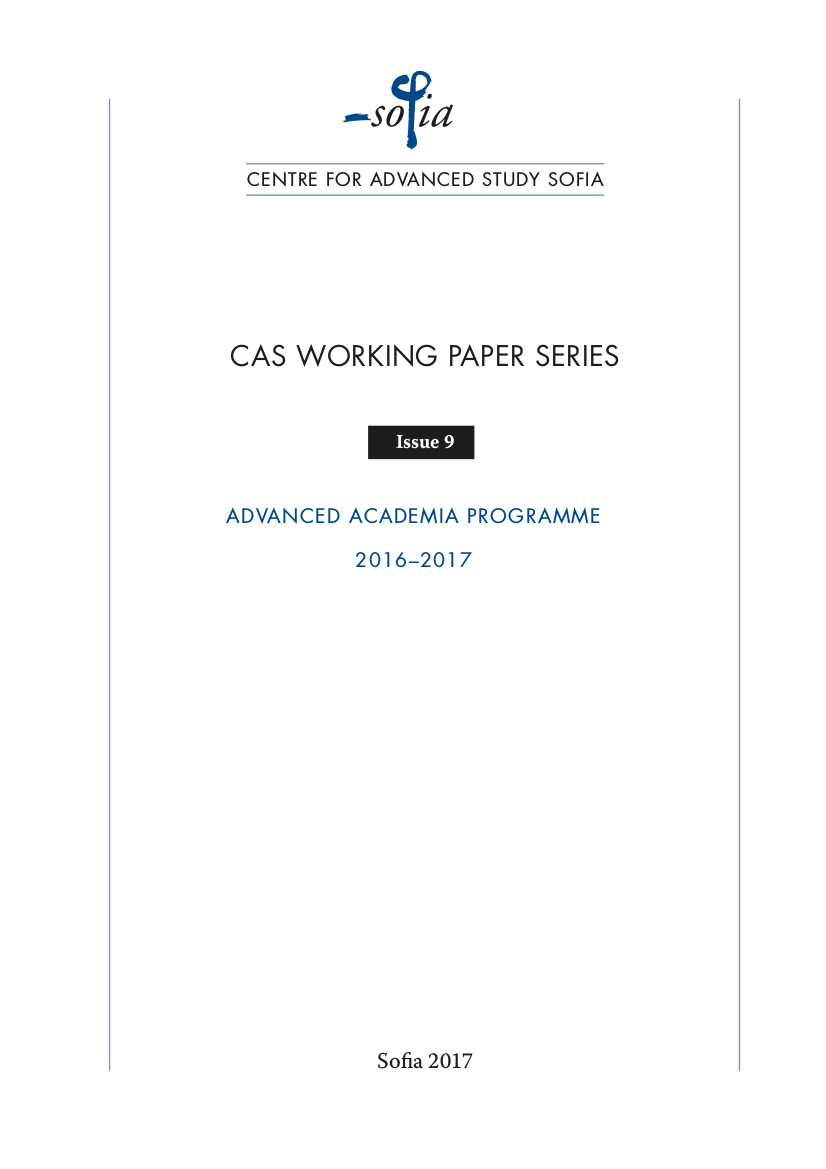Socialist Industrialisation in a Transnational Perspective. The Bulgarian “Economic Leap” (1956/58–1960)
Socialist Industrialisation in a Transnational Perspective. The Bulgarian “Economic Leap” (1956/58–1960)
Author(s): Jan ZofkaSubject(s): Economic history, Post-War period (1950 - 1989)
Published by: Centre for Advanced Study Sofia (CAS)
Keywords: socialist industrialisation; Bulgaria
Summary/Abstract: In autumn 1958 the Bulgarian party leadership called for an „economic leap“ and for a fulfilment of the Third Five-Year-Plan in „three to four years“. This campaign aimed for a fast development of Bulgaria from an agricultural to an industrialised country. While not resulting in a humanitarian disaster, as the Chinese “Great Leap” did, by which it was partly inspired, the Bulgarian experiment led to a huge pile of debts at international banks. The text asks for the transnational dimension of the campaign as an example for state socialist industrialisation drives. The important role of the state in 20th century socialism has led many observers (in the West) to conceive of the Soviet Union, the COMECON or other socialist states as being autarchic and the classic Cold War narratives described the Iron Curtain as being impermeable. This study draws inspiration from newer research that has argued that socialist economies were highly dependent on global developments and that the Soviet leadership – in accord with economic interests – displayed a political will to deepen integration into the world economy. The paper adopts these approaches of socialist globalisation for a study of industrialisation processes in socialist countries and the Bulgarian case in particular. Following these recent research agendas, it concentrates on international diplomatic relations or a quantitative integration into world markets but rather on the social – partly “day-to-day” – dimension of transgressing state borders. It puts the focus on engineers and trainees who were sent on business trips abroad to realise technology transfers, economists who engaged in international debates, foreign trade ministry officials who sought foreign markets, and industrial corporations that cooperated with external partners. The focus on the protagonists is supposed to clarify which interactions across borders (beyond Soviet assistance) were crucial for the campaign, how important transfers of development concepts and technologies from China were, what the dependency on Western technology and capital meant for the Bulgarian industrialisation effort, and which power relations these interactions implied. The results show that these cross-border interactions were not (only) determined by a monolithic Moscow-controlled socialist bloc configuration. Instead, they also reflected global power relations – with world markets and western technology always present – and opened up a certain room to manoeuvre for the actors on the ground vis-à-vis national party leaderships, governments and “Moscow”.
Journal: CAS Sofia Working Paper Series
- Issue Year: 2017
- Issue No: 9
- Page Range: 1-23
- Page Count: 23
- Language: English

